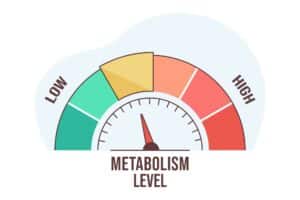Researchers found that mice who performed physical activity in the late morning appeared to have a higher metabolism than those who exercised in the late evening
The time of day can affect your body in more ways than you think possible. A new study shows a correlation between physical activity at a certain time of the day and its impact on metabolism and fat loss.
Researchers from Karolinska Institutet in Sweden and the University of Copenhagen in Denmark, studied the activity of mice, as they share many basic physiological functions with humans. The mice were made to go through high-intensity exercise sessions at two different times of the day – an early active phase (which corresponds to late morning for humans) and an early rest phase (late evening for humans).
The focus of their study was the rodents’ adipose tissue, a connective tissue that extends throughout the body. Also known as body fat, this tissue is found under the skin, in the inner cavities of the bone marrow, and between the internal organs. Adipose tissue not only plays a significant role in storing and releasing energy but also communicates with the body’s internal organs through nerve cells and blood vessels.
Researchers found that mice who performed physical activity in the early phase appeared to have a higher metabolism than those who exercised in the early rest phase.

“Our results suggest that late morning exercise could be more effective than late evening exercise in terms of boosting the metabolism and the burning of fact…and could prove valuable to people who are overweight,” said Juleen R. Zierath, professor at Department of Molecular Medicine and Surgery and the Department of Physiology and Pharmacology, Karolinska Institute.
“Right timing seems to be important to the body’s energy balance and to improving the health benefits of exercise, but more studies are needed to draw any reliable conclusions about the relevance of our findings to humans,” Professor Juleen added.
Metabolism is a process whereby your body converts food into energy by combining oxygen and calories to fuel body functions. It is a continuous process that does not stop even while you are resting or sleeping. A slow metabolism indicates that your body needs to burn only a few calories, even when it is at rest. Alternatively, a fast metabolism burns more calories.
Also Read: Intervals between meals not helpful in weight loss: study


















Add Comment